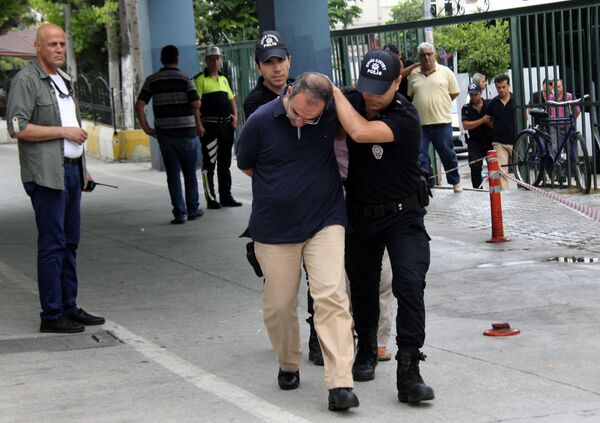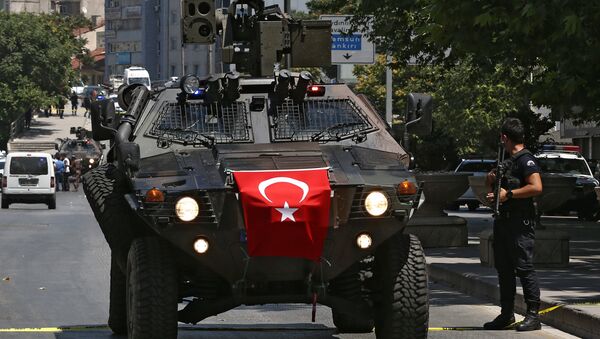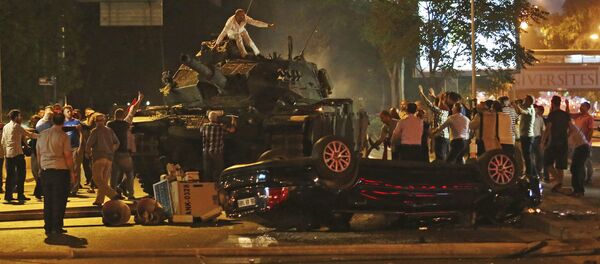The interview came after Erdogan declared a 3-month state of emergency in the country in the aftermath of the failed coup attempt.
The state of emergency was needed "in order to remove this threat as soon as possible," Erdogan said, in a clear nod to the Gulen movement which Ankara claims was behind the failed coup.
Ozyurek, for her part, recalled that Turkey has a long history of coups and long extended states of emergency, when the parliament was pushed aside and there were mass human right violations.

"Of course, this coup attempt is horrible and the people who staged it need to be found and prosecuted, but it is also very important that it should be done within the frame of the law so that it could not be turned into a collective punishment," she said.
When asked about whether the Gulen movement could really be behind the attempted coup, Ozyurek said that the issue is first and foremost related to the mood currently in place in the Turkish army.
Turkey post-coup purge: Licenses of 21,000 teachers revoked, 1,577 deans ordered to resign https://t.co/VDOErq23lx pic.twitter.com/thtSwWzMP6
— RT (@RT_com) 19 июля 2016 г.
According to her, "for us social scientists the army has always been a sort of a black box, they have never talked to social scientists and it's quite difficult to know what is going on between the doors."
"It's hard to understand what brought these people to try to stage the coup. Gulenists might be powerful in the army, but I also can imagine that there might be other officers unhappy about what was going on in Turkey, namely, it might be a coalition of different forces in the army," she said.
The July 15 coup attempt left nearly 300 people dead and over 1,000 injured, and has been blamed on the movement of exiled religious and political leader Fethullah Gulen. Ankara has requested Gulen's extradition from the US.
"Other states could be behind this coup attempt. Gulenists have a 'supreme intelligence,' which could have plotted all this. The time will come for all these links to be revealed," he said.
The Turkish government has launched an unprecedented crackdown on those suspected of being involved in the events of last week.
Nearly 50,000 have been targeted as part of the purge, including military personnel, educators, judges, and civil servants. A state of emergency will, in theory, allow the Erdogan government to tighten its grip even further.




